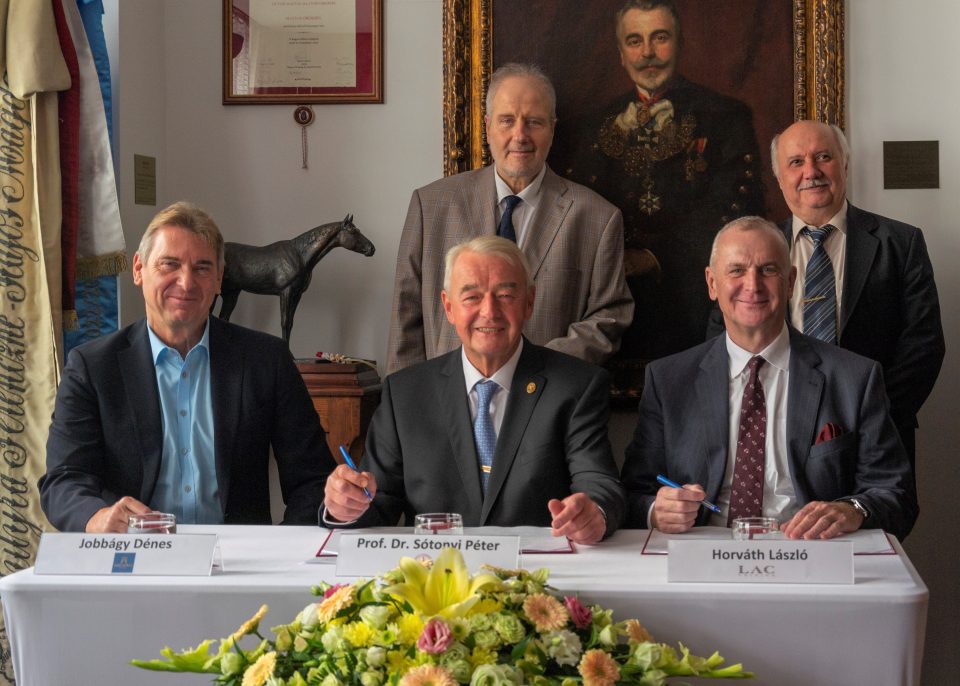The University of Veterinary Medicine Budapest has signed a development cooperation agreement with Rákvakcina BVM Kft. regarding a Hungarian immunotherapy method developed for the treatment of cancerous diseases and its potential veterinary application. The higher education institution will provide the comprehensive laboratory infrastructure for the research project, valid until 2025. The financing is provided by the Széchenyi Funds, leading in capital financing from domestic companies.
In a solemn ceremony, Prof. Dr. Péter Sótonyi, the rector of the University of Veterinary Medicine Budapest, and László Horváth, the representative of Rákvakcina BVM Kft., signed an agreement on the further development and possible veterinary application of a Hungarian immunotherapy procedure developed for the treatment of cancerous diseases.
“Despite their significant toxicity and costs, chemotherapy treatments often do not achieve the desired results, and average survival is often measured in months. Immunotherapy is already an integral part of veterinary practice, and sensitization treatments have long been used to alleviate allergic diseases in companion animals,” said Prof. Dr. Péter Sótonyi during the signing of the agreement. The University of Veterinary Medicine Budapest will collaborate with the company in further developing the immunotherapeutic know-how, which is part of the intellectual property of Rákvakcina BVM Kft., and exploring its possible veterinary applications.
László Horváth, the representative of Rákvakcina BVM Kft., stated that the project will be carried out in three stages. In the first phase, with the professional involvement of the university’s researchers, the effectiveness of the procedure will be demonstrated and documented according to scientific requirements. In the second phase, depending on the results of the first phase, the clinical evaluation and refinement of the vaccine will be expanded. In the third phase of the project, if the scientific results of animal experiments allow it, the development of the vaccine for human medical purposes will commence.

